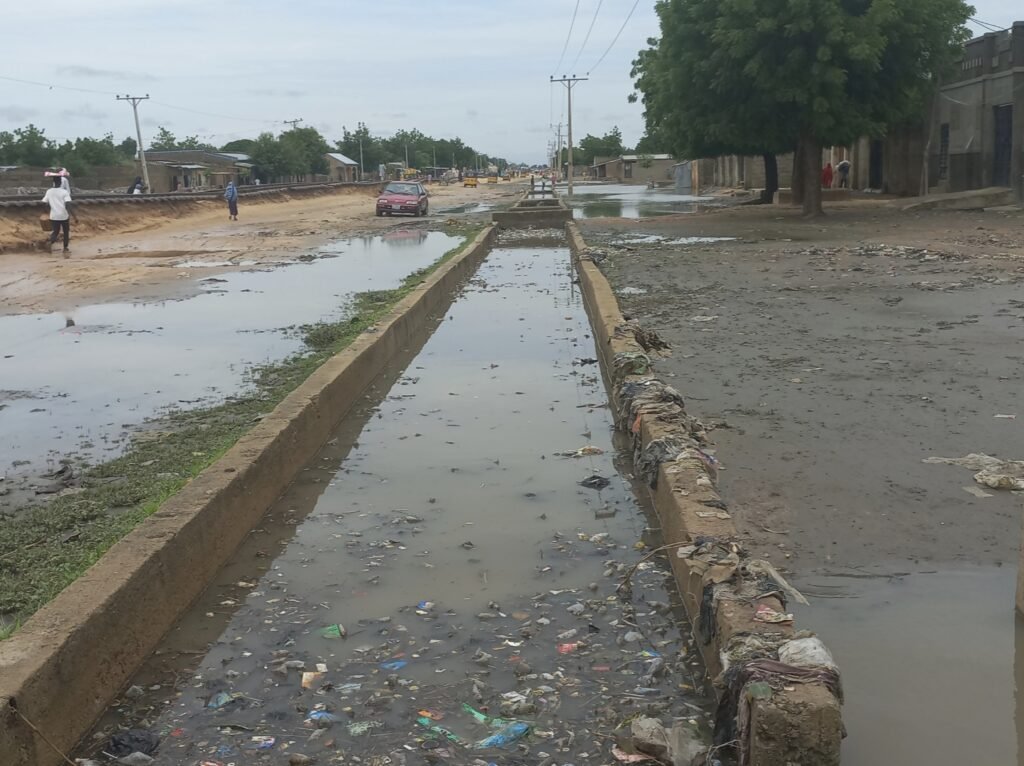Local authorities have confirmed at least 132 cases of cholera in Nigeria’s northeastern Yobe state, with about nine deaths, for a case fatality rate of 6.8%. “Delays in seeking treatment are a major contributor to these deaths,” said Dr. Muhammad Lawan Gana, Yobe City Health Director-General.
Dr Gana said the outbreak was prevalent in Gujiba, Fune, Makina, Nngere and Nguu local government areas, which were already suffering from infrastructure disruption due to heavy rains and flooding. These conditions have severely affected water supplies, leading to pollution and a surge in acute watery diarrhea (AWD) cases.
A week ago, international humanitarian organizations including Médecins Sans Frontières (MSF) warned of an imminent risk of malaria and cholera outbreaks in the region following devastating flooding. “Since the floods, we have seen several cases of clinical cholera. The number of cases is likely to rise further, especially if we do not increase support in water, sanitation and hygiene,” said MSF Nigeria representative. said Dr. Isaly Abdel Kader in a statement.
“Reporting symptoms immediately is critical to saving lives,” Dr. Gana said. He noted that the state government had confirmed the presence of cholera vibrio as a result of collaborative efforts with the World Health Organization (WHO), UNICEF and anti-hunger operations. “We need leaders from all sectors and communities to work together to fight this epidemic,” he added.
Dr. Gana also emphasized the role of the media in raising awareness about preventive measures. “Public education is essential to controlling this epidemic,” he stressed.
The insurgency in northeastern Nigeria has further complicated the response, with damaged roads and limited access to affected areas.
“The focus remains on containing the spread of infection and reducing the case fatality rate as quickly as possible,” Dr Gana said.
Local authorities in Nigeria’s northeastern Yobe state have reported 132 confirmed cases of cholera and nine deaths.
Yobe City Health Commissioner Dr. Muhammad Lawan Gana said delays in treatment were contributing to the death toll.
The outbreak primarily affects Gujiba, Fune, Makina, Nngere and Ngu regions, which are already facing infrastructure damage from heavy rains and flooding, contamination of water supplies and acute watery diarrhea (AWD). This has led to an increase in cases.
Médecins Sans Frontières (MSF) and other humanitarian organizations have warned that the risk of malaria and cholera will increase after the floods.
A joint effort by the World Health Organization (WHO), UNICEF, and anti-hunger efforts confirmed the presence of Vibrio cholerae. Dr. Gana emphasized the importance of immediate symptom reporting and public education to combat the spread of infection, and emphasized the role of the media in prevention awareness.
The ongoing violence is further complicating response efforts as roads are damaged and access to the affected areas is restricted.

